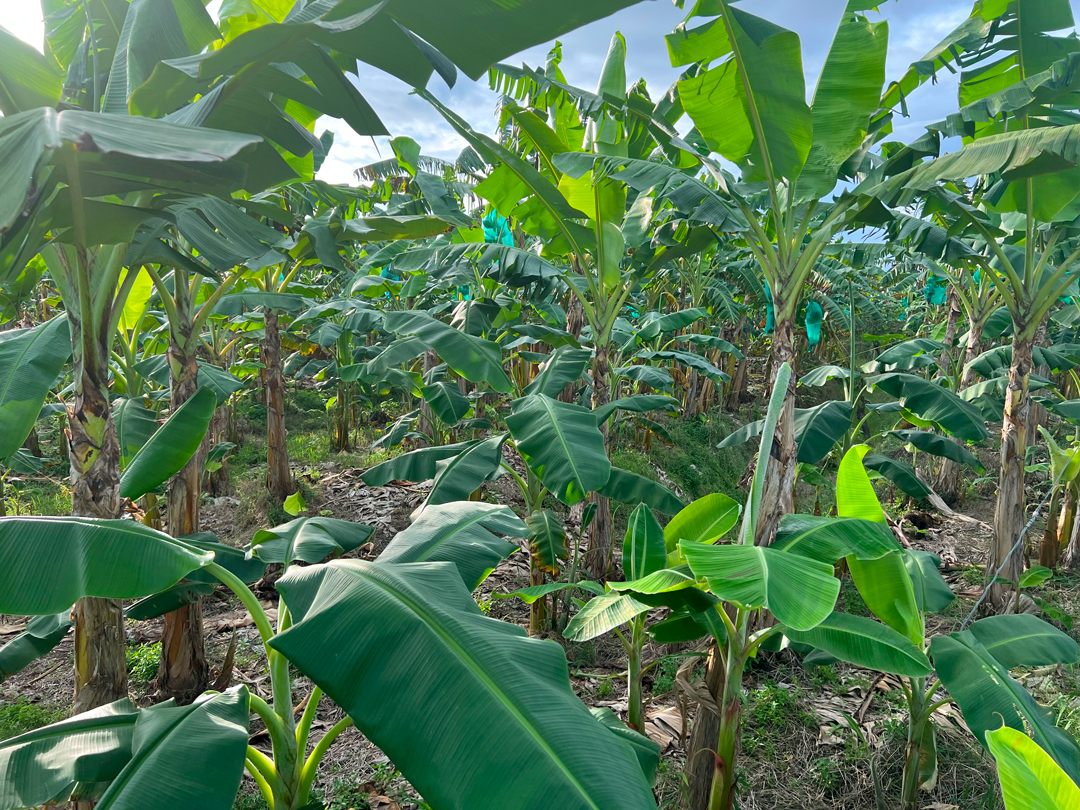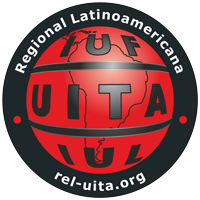Agreement reached
The signing of a new collective bargaining agreement between Sintrainagro and Augura has evidenced, once again, the maturity of the negotiating parties, the unbreakable bond with the land, and the strengthening of dialogue spaces for building development strategies.
Gerardo Iglesias
03 | 08 | 2023

Photo: Gerardo Iglesias
As reported by La Rel, June 20 saw the beginning of the bargaining process in Medellín.
From the outset, the IUF Latin American Regional Office has advocated for the defense of a model of good practices that stands out in the grim scenario of the global banana agribusiness, which is characterized by low wages, outsourced labor, union busting, and the prevalence of employment without rights.
In order to understand the relevance of the results achieved in this collective bargaining process, we need to bear in mind the profound structural problems that plague Colombia’s labor market and its significant lack of decent work. Persistently high unemployment rates are coupled in the country with a level of informality that is completely beyond labor regulations.
The collective bargaining agreement signed on July 11—the only one in the country by branch of activity—covers 20,000 workers from some 60 companies and 265 plantations for a term of four years (from July 1, 2023 to June 30, 2027).
In addition to the economic gains agreed on, which we will discuss in future articles, one of the main aspects of the agreement is the joint statement by Augura and Sintrainagro regarding the model of decent income and relations.
In that statement, the parties note that “the model of labor relations built over more than three decades has earned recognition nationally and internationally as one of the most outstanding cases of improvement of labor relations and conditions in Colombia.” The International Labour Organisation (ILO) itself has recognized this.
In the chapter on regulatory, social security, and general aspects, the statement notes that the advances achieved are the result of workers “freely exercising their right to unionize, their political freedom [and] collective bargaining rights, and their right to strike.”
This takes on special political significance in the current regional context of unionism.
According to the Global Rights Index (ITUC, 2023), the right to collective bargaining is not respected in 76 % of the countries of the Americas, in 88 % unions are prevented from registering, and in 72 % workers are denied the right to form or join a union.

Photo: Gerardo Iglesias
Recently, the ILO, the International Fund for Agricultural Development (IFAD), and CARE International formalized the Decent Work for Equitable Food Systems Coalition, a multilateral partnership to “advance labor and human rights, decent jobs and fair and adequate incomes and wages in the agri-food sector.”
“Recent crises have exposed the frailty of our food systems, highlighting the serious employment and labour problems facing agri-food workers and businesses,” the three organizations stressed in a July 20 press release.
They also renewed their commitment to the promotion of “decent and productive employment across food systems,” noting that the Coalition’s “priorities are based on the four pillars of the ILO’s Decent Work Agenda: rights at work; full and productive employment; social protection; and social dialogue.”
Only days after the signing of the collective agreement in Medellín, the three organizations said in Geneva, Switzerland that “agri-food jobs are among [the] most hazardous, unprotected and poorly paid. Two-thirds of those workers classified as ‘extremely poor’ are in agriculture.”
Sintrainagro and Augura, for their part, highlight their “mutual understanding that the set of benefits secured under the agreement and by law satisfy the standards of decent work and wages or income in the sector.”
It should be noted that 84.2 % of workers in Colombia’s rural sector are in the informal market.
In Urabá, banana plantations are everything. Some 100,000 people depend directly or indirectly on this fruit crop. A successful bargaining process and the signing of a new agreement translate into a social catharsis and a region-wide collective sigh of relief.
The new collective bargaining agreement also proves wrong those who are against the existence of strong union organizations and criticize negotiation by branch or industry.
At a time when the United Nations seeks to contribute to the alleviation of poverty in rural areas through decent jobs, we need to turn to those who in Urabá were able to build a culture of social consensus that made it possible to face the crisis of violence of the 1990s to then address the region’s social problems.
